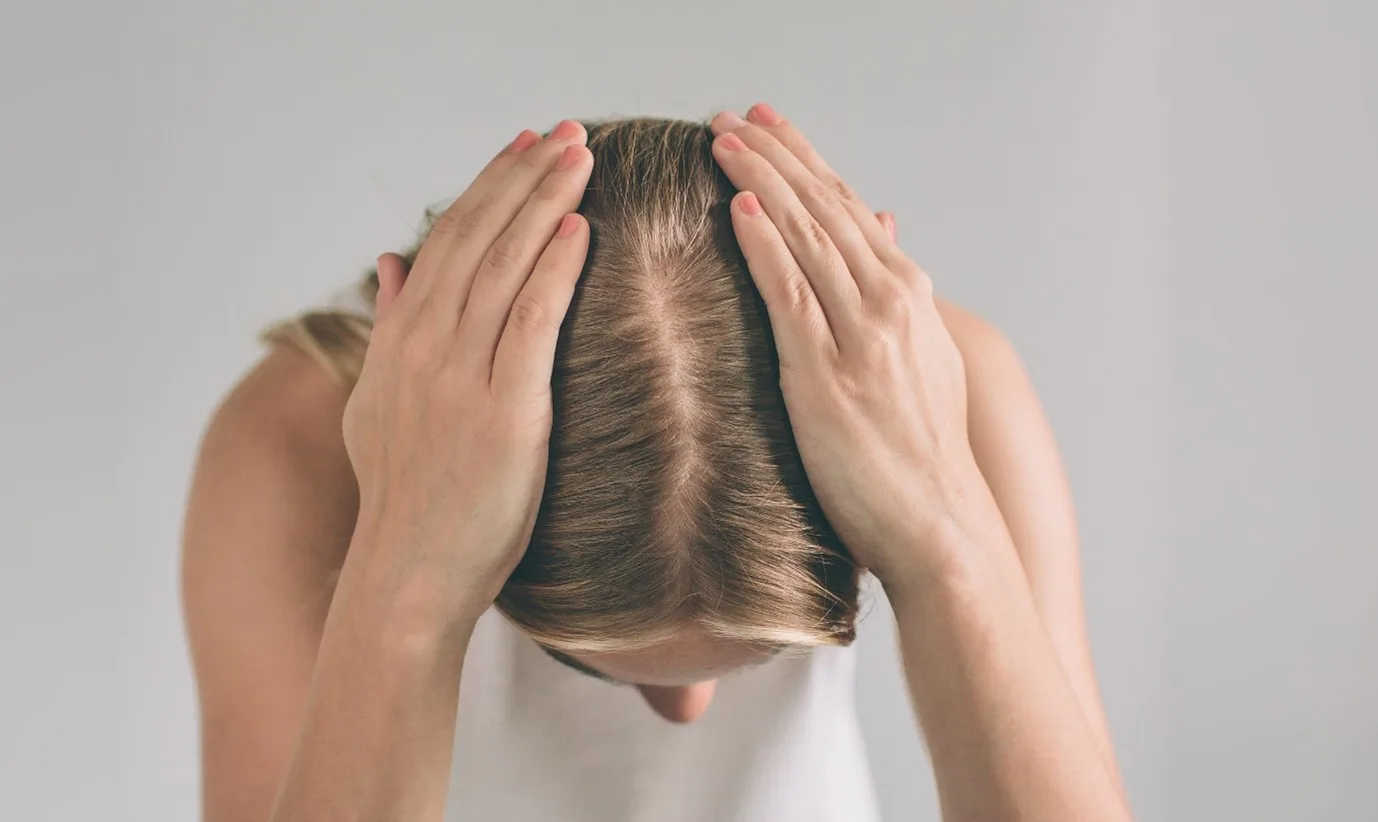Unmasking Scalp Folliculitis: Symptoms, Causes, and Cures

Picture this : you're going about your day, and suddenly, your scalp becomes a battleground of itchiness, redness, and pimple-like bumps. What's going on? You might be dealing with notorious folliculitis scalp issues, a pesky condition that can turn your daily routine into a struggle.
Symptoms of Scalp Folliculitis
How to Diagnosis Scalp Folliculitis
How can Head & Shoulders help with Scalp Folliculitis
What is Scalp Folliculitis
Scalp folliculitis, or folliculitis scalp, or folliculitis of the scalp, is a condition that puts the hair follicles under siege. It involves the inflammation of these tiny structures on your scalp, which can become infected by bacteria, fungi, or other microscopic invaders. The result? An itchy, painful, and sometimes unsightly ordeal of red, pimple-like folliculitis bumps on scalp. This condition can come and go or linger, with its intensity varying from mild to severe.
Symptoms of Scalp Folliculitis
Scalp folliculitis comes with a variety of symptoms, and you might experience one or more of the following:
1. Itchy Scalp :
The most common and infuriating symptom is an incessant itchy scalp , making you want to scratch your head like never before.2. Red Bumps :
Inflamed hair follicles often emerge as small, red bumps that may resemble pesky pimples or pustules.3. Pus-Filled Pimples :
In severe cases, the red scalp bumps can fill up with pus, leading to that infamous oozing and crusting.4. Tenderness and Pain :
The affected areas can become tender and painful when touched or even without any external pressure.5. Hair Loss :
In chronic cases, hair loss around the inflamed follicles can occur, potentially adding to your distress.6. Burning Sensation :
Some people describe a burning or stinging feeling on their scalp , further intensifying the discomfort.Causes of Scalp Folliculitis
Unmasking the culprits behind scalp folliculitis is crucial in winning the battle. Here's what could be fueling this scalp dilemma:
1. Bacterial Invasion :
Staphylococcus aureus, a common bacterium, often leads the charge in causing bacterial scalp folliculitis. It infiltrates your hair follicles through any breaks in your skin, igniting scalp folliculitis infection and inflammation.2. Fungal Foe :
Fungi, especially the Malassezia Globosa , can be cunning adversaries. These fungi naturally reside on your scalp but can flourish under certain conditions, leading to the notorious scalp folliculitis infections.3. Irritation Aggravation :
Scalp folliculitis can be triggered by irritants like certain hair care products, excessive sweating, or the friction from your beloved hats and headgear.4. Hygiene Neglect :
Failing to maintain proper scalp hygiene can create a welcoming environment for bacterial and fungal mischief.5. Underlying Skin Conditions :
Certain skin conditions, such as dermatitis or acne, can make you more susceptible to scalp folliculitis.How to Diagnosis Scalp Folliculitis
Diagnosing scalp folliculitis involves a thorough examination by a healthcare provider or dermatologist, closely analyzing the inflamed areas. In some cases, a sample may be swabbed to identify the microorganism, aiding treatment selection. For complex cases or when other conditions are suspected, a skin biopsy may be recommended, offering valuable insights into the condition's nature.
Scalp Folliculitis Treatment
How do you go for scalp folliculitis treatment? The strategy depends on its cause and severity. Here's the arsenal at your disposal:
1. Antibiotics :
When bacteria are the assailants, oral or topical antibiotics are commonly prescribed. Topical antibiotics come in various forms, including creams, gels, and shampoos.2. Antifungal Medications :
For fungal foes, antifungal shampoos like Head & Shoulders and medications are your best allies.3. Warm Compresses :
Applying warm compresses to the affected areas helps open up hair follicles and provide relief. This method is great for scalp folliculitis treatment at home.4. Avoid Irritants :
Eliminating or avoiding hair care products that could irritate your scalp is pivotal. Switching to gentle shampoos and avoiding tight hairstyles are good tactics. It is imperative to avoid such products when trying scalp folliculitis treatment at home.
5. Hygiene Is Key :
Proper scalp hygiene is a frontline defense in managing and preventing scalp folliculitis. Regular, mild shampooing helps keep your scalp clean.Scalp folliculitis treatment for haircare is not a heavy monster to defeat if you diagnose it on time and know the right methods to treat it.
How can Head & Shoulders help with Scalp Folliculitis
In the quest to defeat scalp folliculitis, Head and Shoulders dandruff shampoo, emerges as a powerful ally. Although it's primarily recognized for dandruff control, it offers several features that can significantly aid in managing this condition:
1. Antifungal Properties :
Head and Shoulders contains pyrithione zinc, an active ingredient with potent antifungal properties. This makes it an effective weapon against one of the leading causes of scalp folliculitis – fungal infections.2. Anti-Inflammatory Effects :
The soothing and anti-inflammatory effects of Head and Shoulders can ease itching, redness, and discomfort, providing welcome relief.3. Cleansing Power :
Regular use of Head and Shoulders effectively removes excess oil, debris, and potential irritants from your scalp, maintaining cleanliness and reducing the risk of infection.4. Prevention of Recurrence :
By controlling factors that contribute to scalp folliculitis, such as fungal growth and inflammation, Head and Shoulders can aid in preventing its reappearance.Conclusion
Scalp folliculitis can be a tough opponent, but it's a battle you can win with the right strategy. Understanding its symptoms, causes, diagnosis, and treatment is your roadmap to finding scalp folliculitis cure easily. Various treatment options, such as antibiotics, antifungal medications, and lifestyle adjustments, can help you tackle the discomfort of scalp folliculitis.
Additionally, products like Head and Shoulders, with their antifungal properties and soothing effects, can be a valuable part of your scalp folliculitis management and prevention plan. If you suspect you're grappling with scalp folliculitis, consult a healthcare provider or dermatologist to determine the best approach for your unique situation and create a suitable treatment plan.



